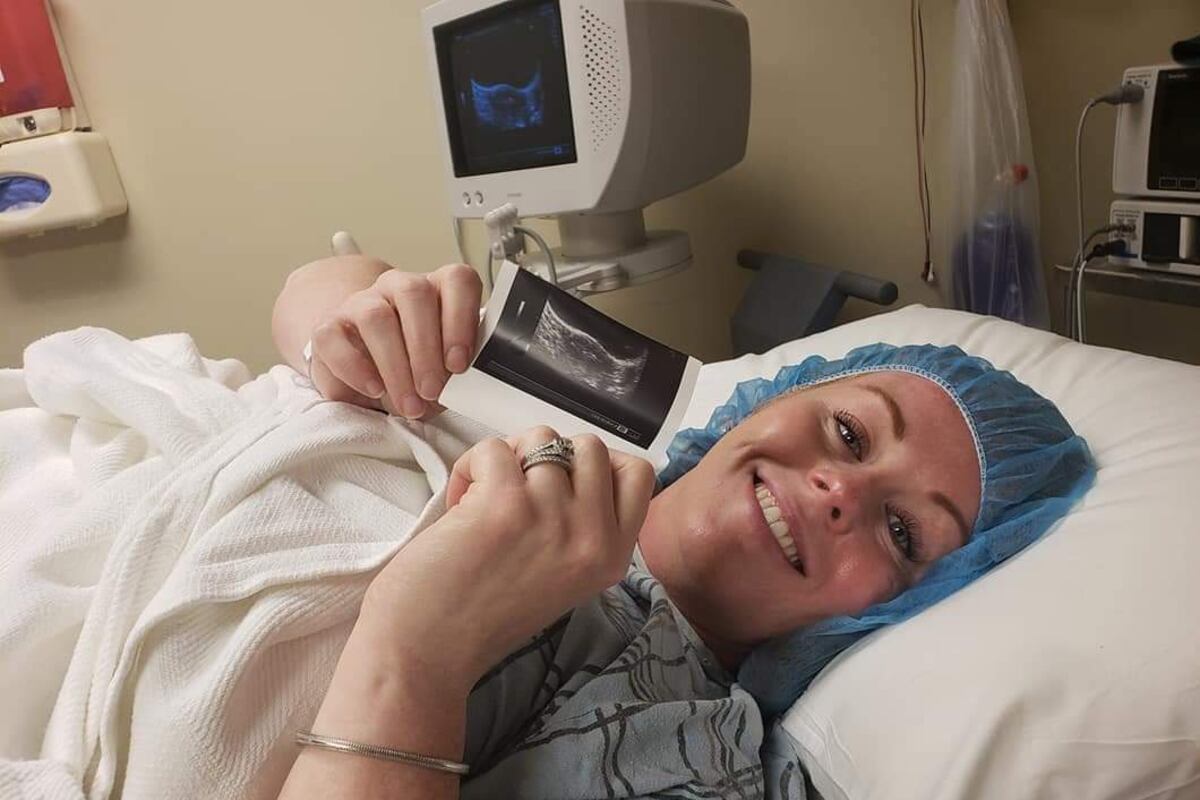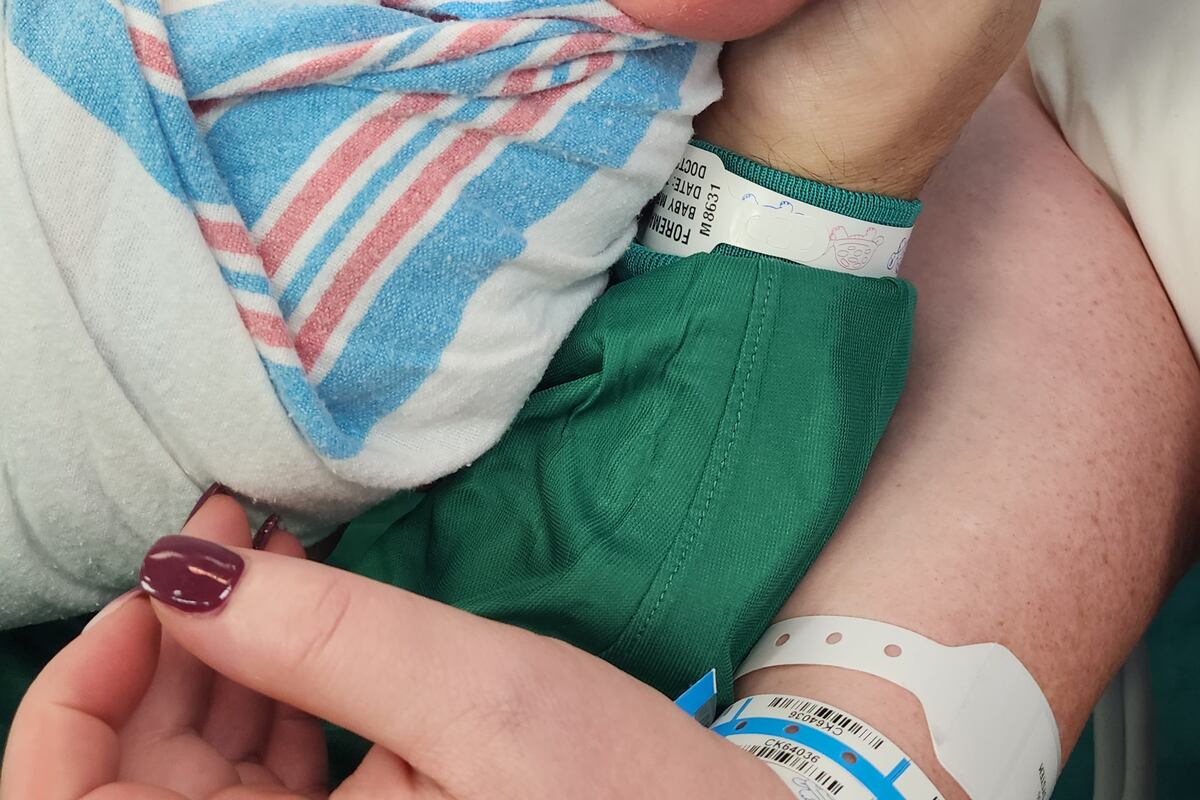One word in Tennessee’s abortion law could threaten IVF’s future, lawyer warns
“This was very intentional; this was very direct and this was designed to leave the door open to regulate IVF in the future.”
NASHVILLE, Tenn. (WSMV) - One word in Tennessee’s abortion law has the power to potentially regulate fertility treatments in the future, according to reproductive rights advocates.
The single word stirring concern among fertility centers and advocates alike defines human life beginning at “fertilization,” as opposed to conception.
The Human Life Protection Act — the law enacted in 2019 by the Tennessee legislature as a so-called “trigger ban” — went into effect Aug. 25, 2022. It defines the biological act of a sperm penetrating an egg as the point of fertilization, which occurs outside the body in a lab during fertility treatments.
Reproductive rights attorney Chloe Akers says this descriptive language has the power to open the legislative door to a law that restricts fertility treatments.
“As an attorney I know words matter, and the people who write laws know it,” Akers said. “This was very intentional; this was very direct and this was designed to leave the door open to regulate IVF in the future.”
Defining life as beginning at fertilization lays a legislative foundation to assign personhood to an embryo, Akers warns. A personhood law would afford the same rights to an embryo that are afforded to a human adult.
“What happens when a pregnant patient is a doctor or a police officer and they are shot in the course of duty and they lose that pregnancy, are they on the hook for reckless endangerment?” Akers asked. “If we have personhood, [who] takes priority?”
Previability is defined as the stage of fetal development at which a baby could survive outside of the mother’s body. Most “neonates” born at or after 26 weeks of gestation have a high likelihood of survival with intense intervention. A baby born before 22 weeks is considered by medical experts to be unable to survive.
“You can’t prescribe all the rights outside the womb and not run into incredibly concerning issues of ethics,” said Akers, who is watching this issue play out in Missouri.
If the Tennessee legislature decides to pursue personhood on the basis of the word “fertilization,” it would make it illegal to discard embryos that were not implanted, like those that stop growing or have genetic abnormalities. It would be a direct threat to assisted reproductive technologies (ART) like in-vitro fertilization (IVF) which accounts for the births of 8 million children since it was first introduced in 1978.
“Concerning” audio
On Oct. 27, 2022, Tennessee Right to Life, the anti-abortion group that served as the main writers and lobbyists behind Tennessee’s abortion law, hosted a webinar to encourage the Republican caucus in Tennessee to be proud of the law they passed.
The audio was obtained and reviewed by ProPublica. WSMV was given express consent to include it in this investigation. As ProPublica noted, the call “provides the clearest examples yet of the strategy that the law’s architects are pursuing to influence legislators.”
In the recording, Stephen Billy, the Vice President of State Affairs for Susan B Anthony Pro-Life America said, “Maybe your caucus gets to a point next year, two years from now, three years from now where you do want to talk about IVF and how to regulate it in a more ethical way or deal with contraceptive issues, but I don’t think it’s a conversation you need to have now, and I would not recommend having it now in the context of your current pro-life law.”
In the call, the voice of Will Brewer, legal counsel and lobbyist for Tennessee Right to Life, can also be heard encouraging lawmakers to stay the course.
“This law was carefully thought out, carefully drafted by the foremost scholars around the country on this issue and it was flawlessly executed in the legislature by you all overwhelmingly three years ago,” Brewer said during the call.
Brewer agreed in January 2023 to be a part of this WSMV investigation. In late April 2023, he declined. WSMV submitted these four written questions two weeks before this story aired:
- What is TN Right to Life’s stance on the availability of fertility treatments in TN?
- Is the language in the Human Life Protection Act, Section 2.a. 2, where it defines life beginning at “fertilization” intended to restrict access to fertility treatments in the future?
- Is TN Right to Life advocating that lawmakers in TN enact a personhood law in Tennessee?
- In the audio obtained by ProPublica, you describe the Human Life Protection Act as “carefully thought out, carefully drafted by the foremost scholars around the country on this issue.” Did that careful consideration include the future access of fertility treatments in Tennessee?
Brewer replied to the written questions by saying, “We have no comment on any of this.”
Tennessee Right to Life is the state chapter of the national organization that promotes the dignity of human life, especially those threatened by abortion. It also operates a political fundraising committee that endorses candidates who support its mission.
Neither the national Right to Life organization nor the Tennessee chapter have a stated policy stance regarding fertility treatments or assisted reproduction.
“This [law] was very intentional,” Akers said. “This [law] was very direct, and this was designed to leave the door open to regulate IVF in the future.”
Tennessee’s abortion law timeline
In 2019, Tennessee passed a trigger abortion ban known as the Human Life Protection Act that would go into effect in the event Roe v Wade was ever overturned. When the news was first leaked that the Supreme Court intended to issue its ruling on Dobbs to overturn the 1973 Roe decision, states with trigger bans began to prepare. When the ruling was officially released in late June 2022, Tennessee’s attorney general announced he was ready for the new law to go into effect as soon as possible.
In the months that followed, reproductive rights advocates began to translate Tennessee’s ban for doctors and patients alike. It was then understood that Tennessee’s law was one of the strictest in the country because it assessed a Class C felony for any medical professionals who perform an abortion. The law was met with outrage and even surprise by lawmakers like Tennessee State Sen. Richard Briggs, who said he intended to “clean up” or “clarify” the law in the 2023 legislative session.
In the 2023 legislative session, lawmakers narrowly made good on their promise to allow an exception to the abortion law in the case of a life-threatening outcome for the mother. It was passed in March and contained language that explicitly exempts ectopic and molar pregnancies from the ban and allows a doctor to perform an abortion “to prevent serious risk of substantial and irreversible impairment of a major bodily function of the pregnant woman.”
Gov. Bill Lee signed the legislation into law April 28.
Understanding fertility treatments
One in five women (19%) struggle to become mothers, while 1 in 4 (26%) of women have difficulty getting pregnant or carrying a pregnancy to term, which is known as ‘impaired fecundity.’”
If a woman tries unsuccessfully to conceive for one year’s time, she reaches the CDC’s threshold of “infertile” and can pursue a series of treatments and testing within the realm of assisted reproductive technologies (ART) that range from intrauterine inseminations (IUI’s), injections, transfers and IVF.
IVF is the most common form of fertility treatment. First introduced in 1978, the term ‘in vitro’ means ‘outside a living organism,’ as an egg is fertilized by a sperm in a petri dish.
The process begins with a woman taking a slew of medicines to cause her to develop more eggs in a single ovulation cycle. Those eggs are gently suctioned out of the body and evaluated by an embryologist to determine genetic viability. Only a few eggs are then allowed to be implanted by sperm that is either placed around or injected directly into each egg to create an embryo. The embryos are then graded on their likelihood of success. The highest-graded embryo is often the first to be implanted.
Learn more about IVF success rates here.
Since this breakthrough in the treatment of infertility, the field of reproductive endocrinology/infertility (REI) has progressed, and IVF now accounts for 1.6% of live births in the United States each year, about 77,000 births each year.
“I’d give everything up”





Shannon Foreman, 36, of Hartsville, Tennessee, waited eight years for the moments she now lives daily with her 6-month-old daughter. She and her husband Jeff were high school sweethearts who married in 2014 and began trying to conceive.
“I don’t think infertility was ever in the forefront of our minds, even though it took three years before we had a natural pregnancy for the first time,” Foreman said.
The first pregnancy occurred in 2017 and was considered “chemical.” Chemical pregnancies result in very early miscarriage that happens within the first five weeks of pregnancy. An embryo forms and may even embed in the uterine lining (known as implantation), but then it stops developing. Chemical pregnancies occur so early that many people who miscarry never realize it happened.
After that event, the couple began seeking fertility treatments and started with intra-uterine insemination (IUI). IUI’s are a simple procedure where sperm is deposited into the upper uterine cavity. It has a 10-20% success rate, but Jeff and Shannon were unsuccessful.
“The first time we had a failed IUI, it sunk in ‘we may never have success,’” Foreman said.
The couple changed fertility clinics and began traveling nearly three hours multiple times a week to TN Reproductive Medicine in Chattanooga. They started with an egg retrieval of Shannon’s own eggs. Thirty-three eggs were pulled, but only three were fertilized. The couple learned later that all three eggs had a genetic anomaly within the fifth chromosome and could not be implanted.
“The geneticist told me I have a balanced translocation which meant it would be very hard for me to conceive my own children,” Foreman said.
The couple was instructed to move on to donor eggs and explore IVF. Egg donation happens when a female donor gives her eggs to a recipient to allow the recipient to have a baby. To donate eggs, the donor must go through the same medication cycle used within IVF to cause her to develop multiple eggs over a single ovulation cycle. Her eggs are removed, and evaluated by an embryologist, then sperm from the biological father is placed around or injected into each egg. Embryos are graded on their likelihood of success.
The donor Jeff and Shannon used was young and also had eggs that were highly graded. In all, eleven eggs were retrieved from the donor and four of them were deemed genetically normal for transfer. Shannon underwent three separate transfers where the embryos were placed in Shannon’s body. The first time was a transfer of boy-girl twins, which resulted in a chemical pregnancy and a quick miscarriage within a week.
The second transfer was a girl but was also unsuccessful. The third transfer resulted in baby, Rory, born in November 2022.
“She was our last one,” Foreman said looking at baby Rory sleeping in her arms. “She was the worst graded and she was the only one that took.”
“I think it was even said to us that it was not as likely to have success with her than the other transfers,” Jeff Foreman said.

Cost of IVF
The cost of infertility is quite high, particularly for people without insurance coverage for treatments and procedures. Tennessee is not one of the 19 states that mandate insurance coverage for infertility treatments, and neither Shannon nor Jeff’s insurance covered it.
“It was a struggle, not only mentally but financially,” Jeff Foreman said.
The Foreman’s paid for procedures, medications, egg retrievals for Shannon and their donor, labs, ultrasounds, and doctors’ appointments. The donor cycle cost the couple roughly $50,000, while each embryo transfer incurred a bill of a few thousand dollars each time.
“We’ve probably spent a couple hundred thousand dollars to get here with [baby Rory],” Shannon Foreman said.
Concern over future access
IVF and other fertility treatments are not yet regulated in Tennessee, but parents and advocates fear that could change. As Akers points out, the word “fertilization” could open the door to a personhood law in Tennessee, which is currently playing out in Missouri.
“There’s that fear that literally something could pass that makes it to where we can’t do this again, that we can’t give her a sibling,” Foreman said. “Our friends going through the same thing wouldn’t be able to become parents.”
The couple has since begun engaging their donor to see if she would be willing to donate eggs again to give baby Rory a biological sibling.
“It definitely sped up our timeline a little bit.”
Copyright 2023 WSMV. All rights reserved.












